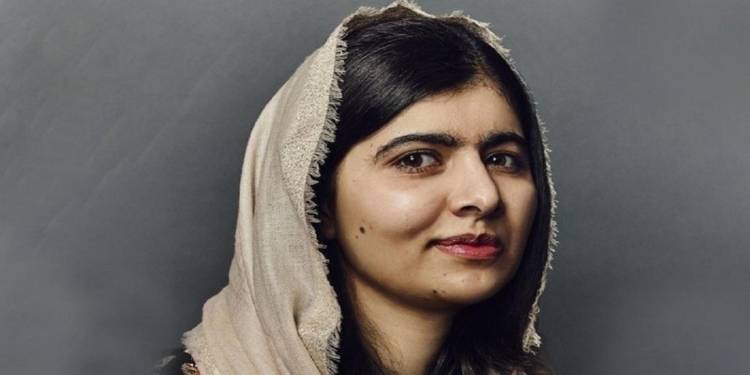
Noble laureate Malala Yousafzai has expressed gratitude to Foreign Minister Bilawal Bhutto Zardari for convening the conference to discuss the "Role and rights of Muslim women in the Muslim world".
In a video message, Malala said that she is thankful to all the women dignitaries, government officials, envoys, and activists for their leadership and their role in promoting gender equality. She said that these are all role models for women around the world.
"This is a moment that we celebrate the achievements of women for what they have done to create a fair and equal society, especially in a Muslim world. In this conference, we will celebrate the accomplishments of women in every field of life, like breaking stereotypes and shattering glass ceilings and iron bars," she added.
She further said that these women are inspiring future generations to believe in themselves and to realize that no one should be limited from any opportunity because of their gender or background.
Malala said, "This is also a moment to discuss what is happening to our sisters in some countries, especially Afghanistan and Iran. In Afghanistan and Iran, our sisters are denied basic human rights: the right to education and the right to work." They are facing violence and harassment because they spoke out and decided to choose for themselves, she added.
She said that it is high time to accelerate efforts to defend the rights of Muslim women.
Malala Yousafzai is a Pakistani female education activist and the 2014 Nobel Peace Prize laureate. Awarded when she was 17, she is the world's youngest Nobel Prize laureate, the second Pakistani, and the first Pashtun to receive a Nobel Prize. She is known for human rights advocacy, especially the education of women and children in her native homeland, Swat, where the Pakistani Taliban have at times banned girls from attending school.
On 9 October 2012, while on a bus in Swat District after taking an exam, Yousafzai and two other girls were shot by a Taliban gunman in an assassination attempt in retaliation for her activism; the gunman fled the scene. Yousafzai was hit in the head with a bullet and remained unconscious and in critical condition at the Rawalpindi Institute of Cardiology, but her condition later improved enough for her to be transferred to the Queen Elizabeth Hospital in Birmingham, UK. The attempt on her life sparked an international outpouring of support for her.
In a video message, Malala said that she is thankful to all the women dignitaries, government officials, envoys, and activists for their leadership and their role in promoting gender equality. She said that these are all role models for women around the world.
"This is a moment that we celebrate the achievements of women for what they have done to create a fair and equal society, especially in a Muslim world. In this conference, we will celebrate the accomplishments of women in every field of life, like breaking stereotypes and shattering glass ceilings and iron bars," she added.
She further said that these women are inspiring future generations to believe in themselves and to realize that no one should be limited from any opportunity because of their gender or background.
Malala said, "This is also a moment to discuss what is happening to our sisters in some countries, especially Afghanistan and Iran. In Afghanistan and Iran, our sisters are denied basic human rights: the right to education and the right to work." They are facing violence and harassment because they spoke out and decided to choose for themselves, she added.
She said that it is high time to accelerate efforts to defend the rights of Muslim women.
Malala Yousafzai is a Pakistani female education activist and the 2014 Nobel Peace Prize laureate. Awarded when she was 17, she is the world's youngest Nobel Prize laureate, the second Pakistani, and the first Pashtun to receive a Nobel Prize. She is known for human rights advocacy, especially the education of women and children in her native homeland, Swat, where the Pakistani Taliban have at times banned girls from attending school.
On 9 October 2012, while on a bus in Swat District after taking an exam, Yousafzai and two other girls were shot by a Taliban gunman in an assassination attempt in retaliation for her activism; the gunman fled the scene. Yousafzai was hit in the head with a bullet and remained unconscious and in critical condition at the Rawalpindi Institute of Cardiology, but her condition later improved enough for her to be transferred to the Queen Elizabeth Hospital in Birmingham, UK. The attempt on her life sparked an international outpouring of support for her.

